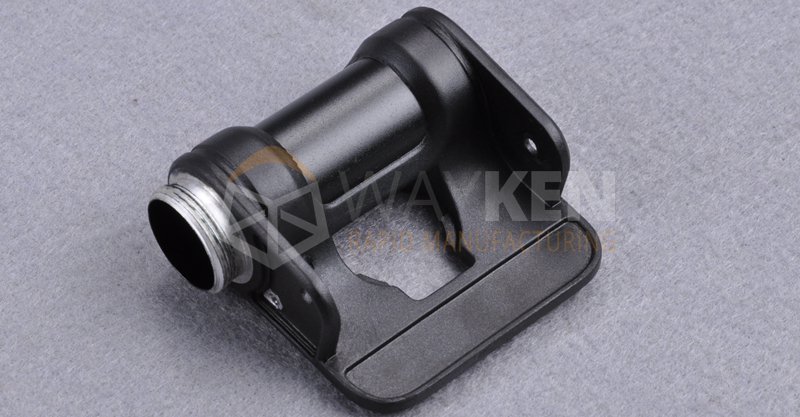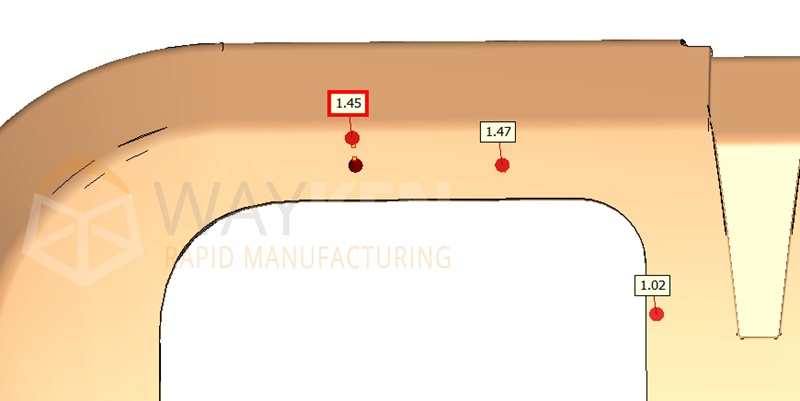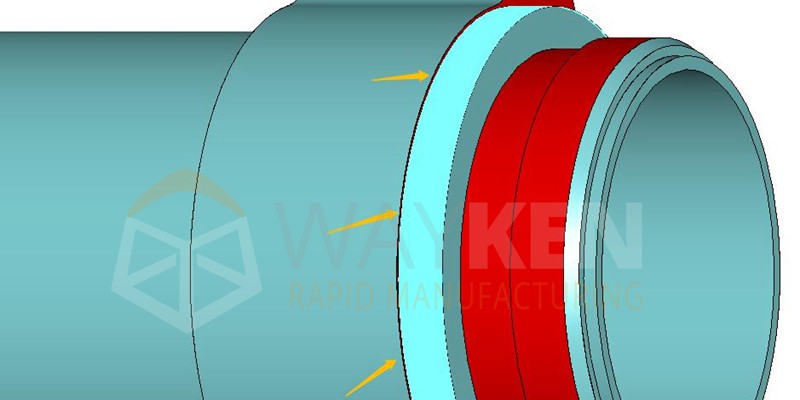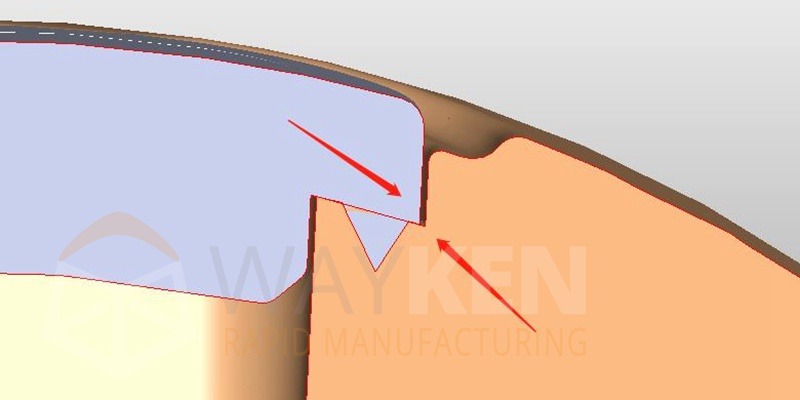Portable Micro Lighting Equipment: A Case Study in Precision Prototyping with WayKen
Discover how Sophia, a talented designer, partnered with WayKen to create high-quality portable lighting equipment prototypes for outdoor and emergency use.
At a Glance of the Project
| Information | |
|---|---|
| Product | Portable Outdoor Micro Lighting Equipment |
| Challenges | High assembly accuracy, black anodizing with detail requirements |
| Technology | Vacuum casting, CNC machining, wire cutting |
| Material | PX245, PU8400, PMMA, ABS, Aluminum 6061 |
| Surface finish | Anodizing, bead blasting, polishing, painting |
| Quantity | 10 Sets |
| Lead Time | 12 Business days |
About the Customer and Product
Sophia is a designer from a well-known French design company, and she recently designed a new type of portable lighting equipment which is usually used to provide light sources for outdoor activities or emergency situations. As the project leader, she was enthusiastic about bringing the product to market. So she found WayKen and planned to produce 10 sets of prototypes. for functional and appearance validation.
A Suitable Processing Solution is the Key to Start
Before contacting WayKen, Sophia tried to this project to a local 3D printing factory. Although she got the prototypes not wait for a long, she was not satisfied with the final quality. It is because the dimensional accuracy of these prototypes was poor, resulting in hard to assemble. In addition, the surface of the portable lighting prototypes was rough, with a not-good appearance.
At first, Sophia was unfamiliar with the vacuum casting process, she initially suggested that all parts should undergo CNC processing for high accuracy and fine surface. However, after a professional evaluation of the parts, WayKen recommended using vacuum casting for the black casing of the portable lighting equipment. And using CNC machining for the other components.
This is because producing 10 sets of cases allowed for efficient duplicate molding by using vacuum casting. This process also offers many advantages such as low casting costs, fast delivery, and the ability to achieve production-quality levels of precision and surface finish.

Determine Materials to Meet Real Uses for the Project
After determining the machining process, we assisted Sophia in selecting the casting material. Since this portable lighting equipment is primarily intended for outdoor use and requires effective sealing to protect the internal structure, we opted for PU8400. PU8400 is a rubber-like material known for its excellent sealing properties, stability, and versatility in waterproof, moisture-proof, and dust-proof.
Additionally, Sophia wanted to extend the service life of the equipment as much as possible. Consequently, we have chosen PX245 for the main shell due to its POM-like qualities, offering exceptional wear resistance and corrosion resistance.
Sophia was satisfied with the suggestion proposed by WayKen, so we started production.
Machining Keypoint Analysis for the Portable Lighting Equipment
To produce high-quality lighting equipment prototypes, we’ve carefully analyzed critical processing key points to ensure superior performance and appearance.

Uniform Wall Thickness
Upon inspecting the design of the product, the wall thickness of the measuring is 1.52mm, 1.58mm, and 1.20mm in the below picture. It is an issue with uneven wall thickness in the shell part. The unevenness would cause the parts to easily shrink and deform during the casting process, which affected the assembly. In addition, it can also cause depressions in the surface of the part, resulting in an undesirable appearance.
To address this problem, we recommend modifying the wall thickness to a consistent 1.5mm. This adjustment ensures uniformity, mitigating these potential issues and resulting in a more robust final product.

Black Anodizing
The lampshades for this lighting equipment are made from AL6061, requiring a black anodized surface treatment. However, a challenge arises due to the presence of areas (where the yellow arrows point and the red area) that must not undergo anodization. Due to these areas serving as the location for a sealing ring, any oxide layer on the aluminum alloy surface could compromise the seal.
Typically, parts are machined and then anodized. Before oxidation, we will apply tape to the designated area of the part to avoid an anodizing reaction in this area. But the area pointed by the yellow arrow cannot do anodizing, because this is the internal structure, it is not easy to stick the tape, which may cause the area to be oxidized.
Therefore, our engineers have devised an innovative solution. For areas indicated by a yellow arrow, we’ll initially leave a surplus when machining. After completing the black anodizing process, we’ll carefully remove the anodized layer from the area. This tailored approach ensures that the area remains untouched, guaranteeing the sealing purpose.

Assembly Accuracy Assurance
To meet our customer’s assembly requirements, we’ve set strict standards. The dimensional accuracy of the front shell and light housing top must be within ±0.02, and at the same time, the positions pointed by the arrows need to be left at right angles.
Thanks to WayKen’s extensive CNC programming expertise enables us to consistently achieve this remarkable dimensional accuracy. During prototype development, we employ wire cutting to ensure the precise creation of right angles, which facilitates the assembly process.
Customer Satisfaction is the Basic for Co-operation
Wayken completed the processing of 10 sets of prototypes on time and sent the qualified inspection report and pictures of parts with beautiful appearances to Sophia for confirmation. After getting Sophia’s feedback that it could be shipped, we shipped the parts to France.
Sophia was very satisfied with this batch of lighting equipment parts. Sophia said I appreciate WayKen’s professional guidance in this project. Wayken not only delivered high-quality parts in a short time but also helped me keep the cost within my budget with the right machining plan. I hope to establish a long-term and stable cooperative relationship with WayKen.
If you’re finding custom parts and prototypes with precision and quality, WayKen’s expertise can make a difference. Contact us today to start a new project.





